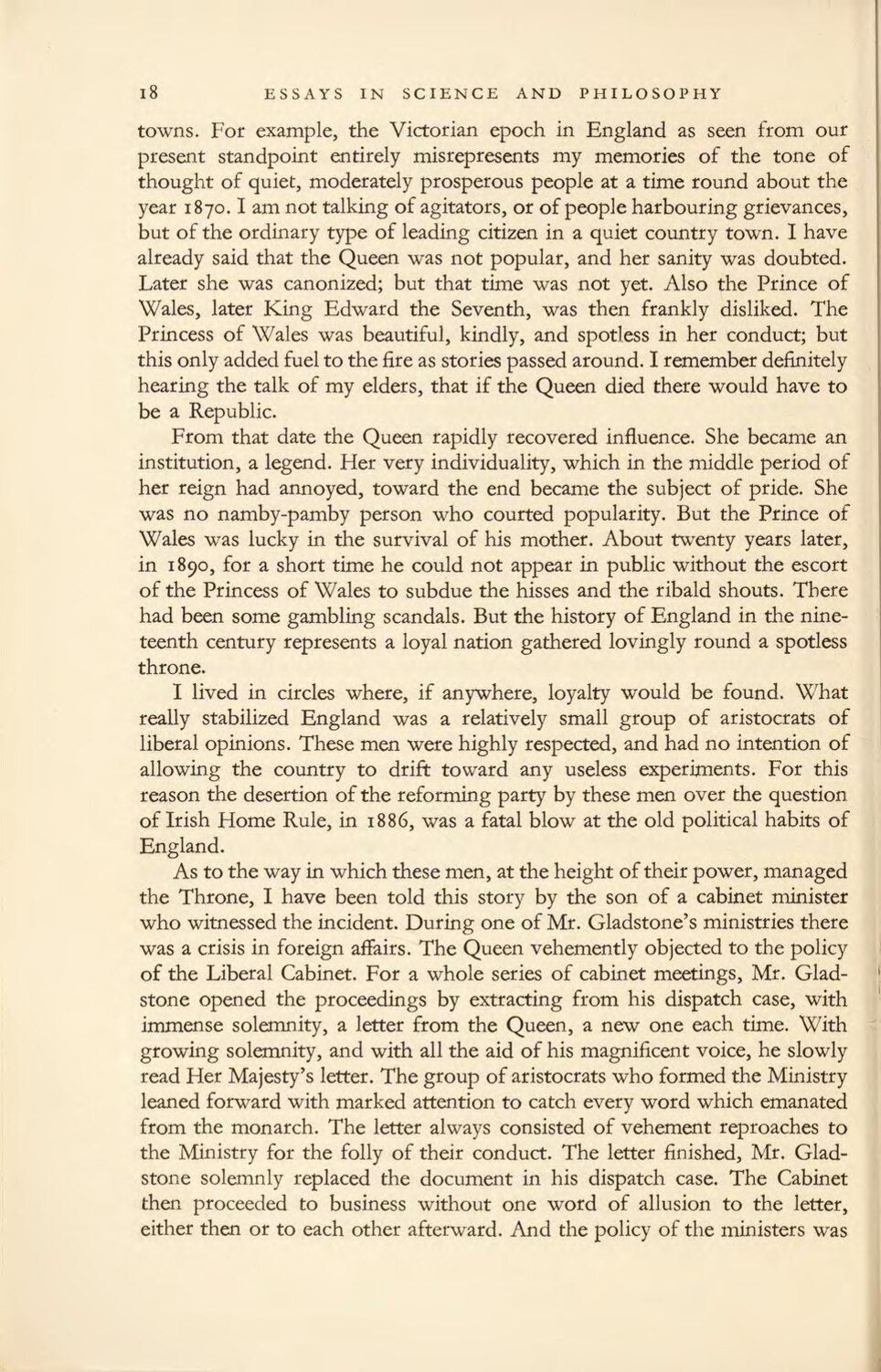towns. For example, the Victorian epoch in England as seen from our present standpoint entirely misrepresents my memories of the tone of thought of quiet, moderately prosperous people at a time round about the year 1870. I am not talking of agitators, or of people harbouring grievances, but of the ordinary type of leading citizen in a quiet country town. I have already said that the Queen was not popular, and her sanity was doubted. Later she was canonized; but that time was not yet. Also the Prince of Wales, later King Edward the Seventh, was then frankly disliked. The Princess of Wales was beautiful, kindly, and spotless in her conduct; but this only added fuel to the fire as stories passed around. I remember definitely hearing the talk of my elders, that if the Queen died there would have to be a Republic.
From that date the Queen rapidly recovered influence. She became an institution, a legend. Her very individuality, which in the middle period of her reign had annoyed, toward the end became the subject of pride. She was no namby-pamby person who courted popularity. But the Prince of Wales was lucky in the survival of his mother. About twenty years later, in 1890, for a short time he could not appear in public without the escort of the Princess of Wales to subdue the hisses and the ribald shouts. There had been some gambling scandals. But the history of England in the nineteenth century represents a loyal nation gathered lovingly round a spotless throne.
I lived in circles where, if anywhere, loyalty would be found. What really stabilized England was a relatively small group of aristocrats of liberal opinions. These men were highly respected, and had no intention of allowing the country to drift toward any useless experiments. For this reason the desertion of the reforming party by these men over the question of Irish Home Rule, in 1886, was a fatal blow at the old political habits of England.
As to the way in which these men, at the height of their power, managed the Throne, I have been told this story by the son of a cabinet minister who witnessed the incident. During one of Mr. Gladstone’s ministries there was a crisis in foreign affairs. The Queen vehemently objected to the policy of the Liberal Cabinet. For a whole series of cabinet meetings, Mr. Gladstone opened the proceedings by extracting from his dispatch case, with immense solemnity, a letter from the Queen, a new one each time. With growing solemnity, and with all the aid of his magnificent voice, he slowly read Her Majesty’s letter. The group of aristocrats who formed the Ministry leaned forward with marked attention to catch every word which emanated from the monarch. The letter always consisted of vehement reproaches to the Ministry for the folly of their conduct. The letter finished, Mr. Gladstone solemnly replaced the document in his dispatch case. The Cabinet then proceeded to business without one word of allusion to the letter, either then or to each other afterward. And the policy of the ministers was
